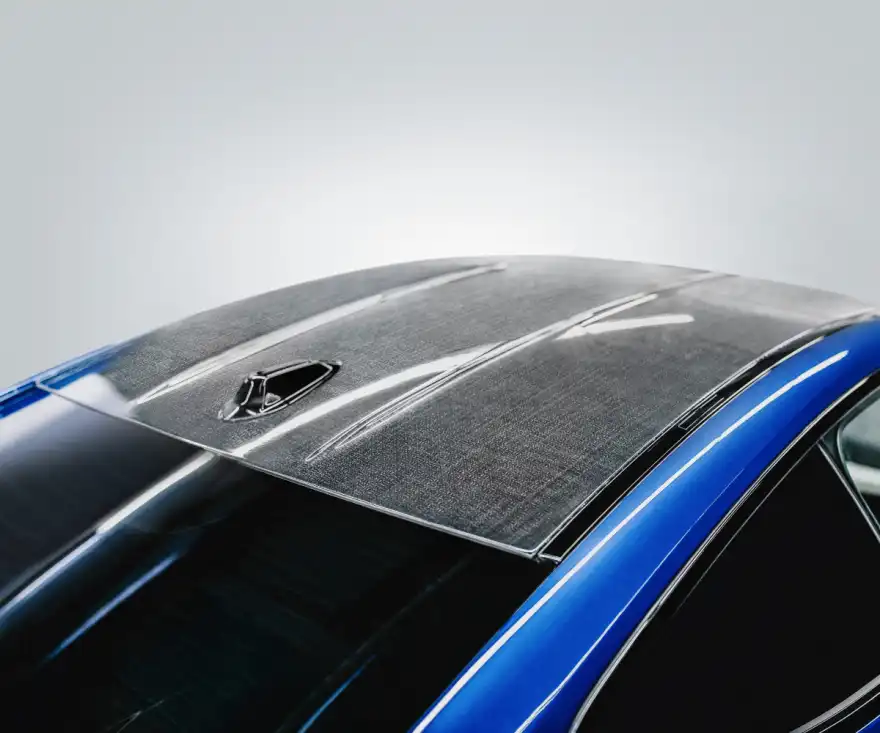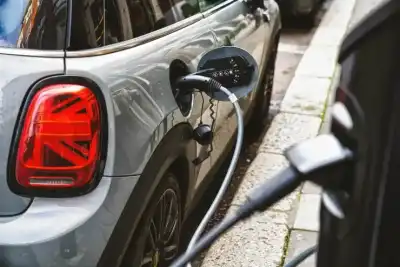
BMW has come up with a brand-new material that could soon replace carbon fibre – and it’s not just better for the planet, it’s going to be used in future cars like the all-electric BMW M3.
Working with a Swiss company called Bcomp, BMW has developed natural-fibre composites that offer similar strength and performance to carbon fibre, but with way less environmental impact. Production emissions are slashed by around 40%, and unlike carbon fibre, this stuff can actually be recycled. Oh, and it could reduce the amount of plastic used in car interiors by up to 70% too.
One of the big tests for BMW was making sure the new material is strong enough to be used on serious components, like a car’s roof – which takes a lot of stress. They’ve cracked it though, and say it’s already being tested on high-performance models like the upcoming M3 EV.
The material itself is made from flax – a plant grown in Europe – and visually, it looks a lot like carbon fibre. Think dark-grey weave, similar to leaf veins. If you’ve watched BMW’s M4 GT4 or DTM racing cars, you might’ve already seen it in action without realising.
BMW M boss Franciscus van Meel called the material a “vital element of innovative lightweight solutions in motorsport, allowing for a reduction in CO2e emissions in the manufacturing process”. It’s lighter, greener, and just as tough – exactly what you want in a high-performance EV.
And the timing couldn’t be better. The EU is considering classifying carbon fibre as a hazardous material due to health risks and potential issues when it’s thrown away – including tiny particles that can harm skin, lungs, and even short-circuit machines.
Although big names like Audi, Mercedes-AMG, and BMW are pushing back on that legislation, BMW’s move to more sustainable materials suggests they’re preparing for a future where carbon fibre might be banned altogether.
In short: performance is staying sharp, but the materials are getting smarter.




